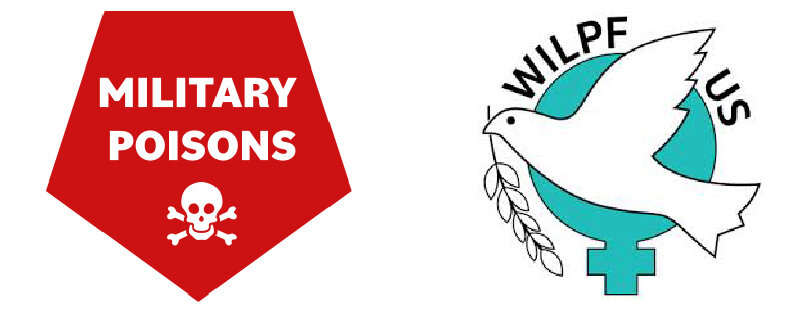Mission for the SAFE Protest
In 2010, under then-President Barack Obama, the President’s Cancer Panel (PCP) declared that environmentally caused cancers were “grossly underestimated” and that these cancers “needlessly devastate American lives.” Despite the alarming conclusions, little, if anything, has changed and business has continued as usual. Not only has business continued, but according to US SEER data from the National Cancer Institute, the rates of several cancers, including children’s cancers, have been continuing to increase for decades. We keep the statistics, the PCP has sounded the alarm, and yet no concrete steps have been taken and in fact, new risks continue to emerge.
We are grass-root organizations/coalitions of communities that feel that we have been failed by our environmental and public health agencies. Our communities have lost lives and livelihoods due to failures by these agencies. These failures allowed exposures to occur and to continue to occur, they allowed the dangerous use and disposal of chemicals to continue unchecked and uncontrolled, they allowed industry-backed science to all-too-often control the narrative on risk, health endpoints, remediation, and the safe use and disposal of chemicals at the expense of public health. While the public health agencies generally observe from a distance, often interacting most often with industry and their paid scientists, lawyers, and lobbyists, our communities bear the real costs of these failures. And we are here to tell you, these costs are real.
We are calling on our elective representatives, and our public health agencies—the EPA, along with the CDC, ATSDR, NTP, and NIEHS—to make a renewed commitment to the protection of the public from preventable exposures in our air, water, food, and homes. The protection of public health needs to be elevated to its appropriate place of priority, so that people across economic, racial, and geographic boundaries can rest, assured that their air is safe to breathe, that their water is safe to drink, and that their neighborhoods are safe places for nurturing life.
Today we are demanding that we take the necessary steps together so that we can reach the day that not one child, whether in suburban North Carolina, Flint, Michigan, or Trenton, New Jersey is needlessly diagnosed with a preventable disease.
First, we demand that public health agencies need to re-commit themselves to the science of public health. This means that the science of public health needs to be funded by the public and needs to be free of industry bias and influence. We need our agencies to fund scientific investigations to objectively answer questions regarding safety and risk that are truly independent of industry-funded “science,” including the influence of the long list of go-to industry beholden consultants who do nothing but deny risk and delay remedial action. For far too long, our agencies have relied on industry self-reporting and scientists funded and controlled by the very industries our communities need protecting from, including them in prominent roles on panels designed to protect the public, not industry. This science must be publicly funded and intellectually independent.
We demand that new regulations be put in place that elevate the PCP’s 2010 findings above mere alarming headlines to concrete regulatory and policy initiatives aimed at reducing risk-bearing exposures. Public health regulations have long favored the industry and have left the public in the dark on the very poisons present in their tap water, their yards, and their communities. We need modern updates to outdated and outmoded regulatory frameworks that account for the latest in environmental science including the persistence and toxicity of chemicals like per-fluorinated compounds and microplastics, the presence of personal care and pharmaceutical products in our surface and drinking waters, and the cumulative and synergistic toxicity of legacy chemicals that continue to show up in our communities. This includes revisiting the EPA’s Sewage Sludge Rule and the accompanying risk assessment which many argued was ill-advised at the time and at which time persistent chemicals like PCBs and PFOs prove continues to be severely inadequate to protect our environment and public health. The EPA needs to revisit other so-called beneficial uses of hazardous and harmful wastes including coal ash, oil and natural gas wastes, and other radioactive, toxic-laden wastes that we continue to dispose of by applying to our farms, our roadways, and our neighborhoods. There should be no place in our communities for these toxic wastes, simply through the re-defining of these uses as “beneficial”—toxic means toxic. We demand that agency policies be focused on holding the industry to a true public health standard, one that has guided the medical profession since its inception, FIRST, DO NO HARM. This means that chemicals should not be presumed to be safe and this means that exposures to chemicals that are known neurotoxins, known carcinogens, or known teratogens, MUST BE PREVENTED before illness and death. We demand public health policies that are not based on statistically significant body counts, but on proactive measures to protect and prevent exposures that may result in disease. The burden should not be on communities to establish harm before our agencies come to our aid.
Finally, we demand transparency and accountability. There can be no more industry backdoors, no more undue influence from industry-backed science. In addition, those that engage in these activities, whether it be the distortion of science, the reckless distribution of chemicals that pervade our food, water, and bodies despite evidence of persistence and toxicity, or hiding evidence of its contamination while communities like ours suffer the real and deadly consequences. These repeat players must be held to account and we demand policies and regulations that ensure that not only are companies not rewarded for delaying disclosure, cutting corners, or distorting science—but that they are punished for doing so. For too long, communities like ours have borne the brunt of the careless, reckless, and often intentional acts of these industries. No more.



